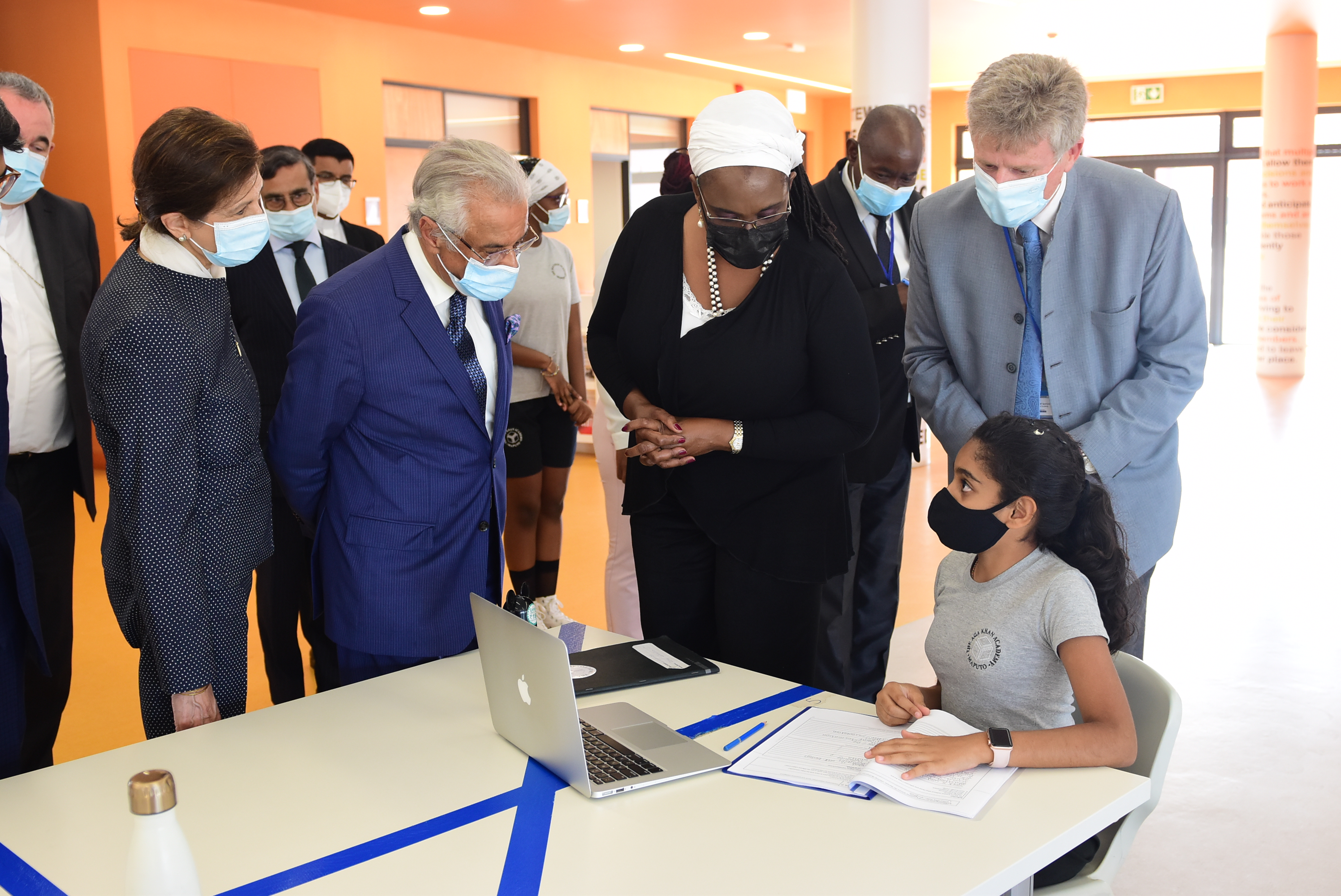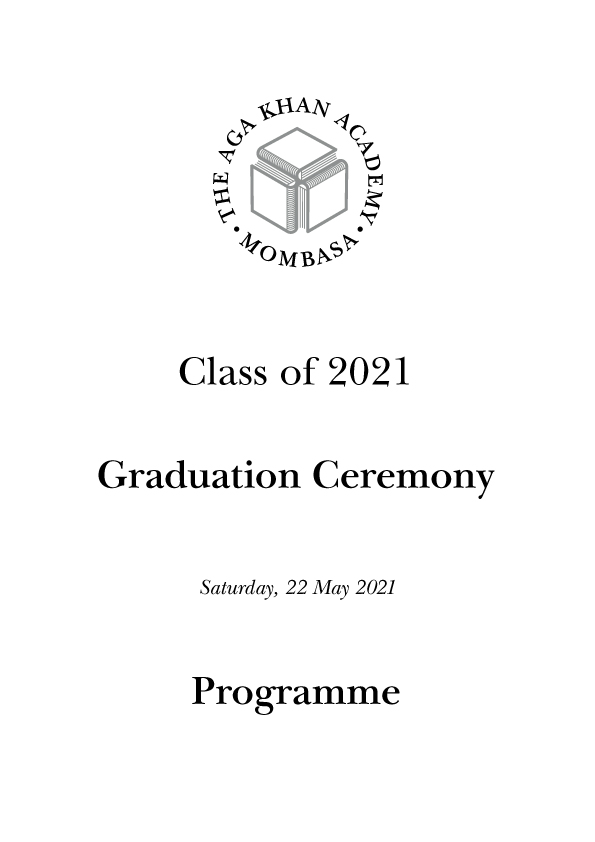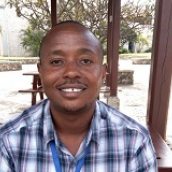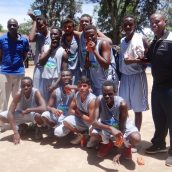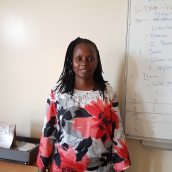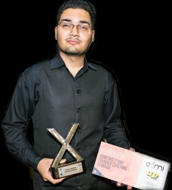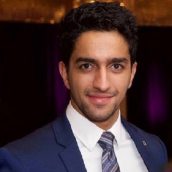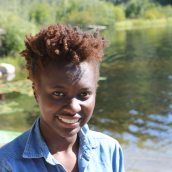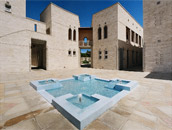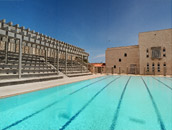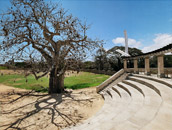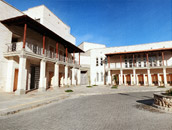Graduation 2021 Programme
Junior School Newsletter No. 2 - September 2016
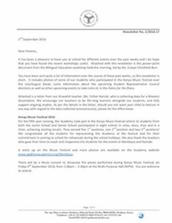
Read the latest news from the Junior School, which features student success at the 2016 Kenya Music Festival and the upcoming SRC elections.
Jimnah Kimani David: Promoting diversity through sports
“I think one of the biggest assets the Academy has is the diverse cultural background in the student body. Having players coming from all over the world from so many walks of life adds a unique element to playing as a team.”
Coach Jimnah Kimani At the Aga Khan Academy (AKA) Mombasa, Jimnah Kimani David wears a lot of different hats. He is the administrative assistant to the vice principal Diploma Progamme, the assistant sports coordinator, as well as a year 6 mentor. However, he is probably best known on campus in his capacity as the open boys’ basketball team coach.Early in his life, Jimnah had never planned to coach a high school basketball team. “I was originally going to go into accounting,” he said. “I later realised I wanted to work with people, and more importantly, with children, which is why I decided to go into education.”
However, he was not entirely inexperienced in his capacity as a basketball coach. Before he graduated in 1999, Jimnah had already begun helping out his high school basketball coach at Mombasa Baptist High School. He was initially taken on as an informal translator for their Texan coach, Stan Littleford, but he quickly became a valuable mentor and role model for the younger players on the team. From then, he grew from strength to strength, eventually leading his team to win two national titles as a player, and one as a coach in 2007.
His stellar coaching skills did not go unnoticed. In the 2012–2013 off-season, Jimnah was approached to take on a role coaching the AKA Mombasa open boys’ basketball team. “I felt I had proven myself as a coach with Mombasa Baptist. But they are an established, well-known basketball school. I relished the challenge of taking on a fresh team and starting with them from scratch.”
Jimnah joined the Academy in August 2012. He had learned about the school from his brother Charles Mwangi Waweru, who attended the Academy and graduated in 2009. “What drew me to the institution was the commitment the Academy had to providing facilities for excellent education to students from all backgrounds,” he reflects.
Lucy Mwandawiro: The inspiring chemist
Mrs Mwandawiro is a proud to be Kenyan. She studied at Kenyatta University where she was able to earn a degree in education. “I was so excited once I graduated and earned my degree,” stated Mrs Mwandawiro. In addition to her Bachelor of Education in science, she also holds a degree in environmental chemistry from the University of Nairobi.
Before coming to the Academy, Mrs Mwandawiro taught at the Jaffery Academy in both Nairobi and Mombasa. She was also involved in the government schools as she worked in the Teacher Service Commission. She became one of the faculty members at the Aga Khan Academy Mombasa 10 years ago. “This is my 11th year and I am proud to be a teacher,” she says emphatically. Although Mrs Mwandawiro had been considering teaching since her college days, she was not always sure that it was the career for her. However, over time she came to enjoy teaching. She explains that teaching is a career which comes with many rewarding aspects. For Mrs Mwandawiro, the most satisfaction comes from when students understand what is being taught. She says, “It is just so rewarding seeing a concept change from hard to easy for a student.” She also says that “another rewarding aspect of being a chemistry teacher is when students link chemistry to their everyday life.”
Mrs Mwandawiro is also a dorm parent in the residential programme at the Academy. In her opinion, the residence has an atmosphere where students nurture good habits, develop independence and set high standards for themselves. In addition, she says that “the residences are a wonderful way to let students from different parts of the world bond together and learn from each other’s cultures.”
Mrs Mwandawiro appreciates the opportunities for professional development at the Academy. “I learned different and effective ways to approach teaching and learning that were friendlier to my students. I like the way the Academy believes that teachers are still learning.”
In addition, she cites the values system informed by the Aga Khan Curricular Strands that make the Academy unique as we strive to be ethical people who respect and accommodate others who are different from us.
Mrs Mwandawiro has been an encouraging teacher at the Academy for 11 years now and has inspired many students. With a Bachelor of Education in science, she has helped many students in the Middle Years and Diploma Programmes, as well as those beyond the Academy. Through her experiences at the Academy, she has learnt and helped others learn as well.
30 November 2016
By Sara Alidina, year 8 (The Reporters)
Photo by Saher Budhwani, year 7 (The Reporters)
Newsletter readers please click here to return to the newsletter (browser version)
Kashyap Gohel (Class of 2011): Providing solutions to improve the world
Kashyap Gohel has been pursuing a Bachelor of Architecture programme at the Jomo Kenyatta University of Agriculture and Technology (JKUAT) in Nairobi, Kenya since graduating from the Aga Khan Academy Mombasa in 2011. "My top marks at the Aga Khan Academy earned me a government scholarship which is about 85% of the annual fees for my architecture course of six years," says Kashyap very proudly. He expects to graduate from JKUAT in June 2017.
"I think the main values the Academy instilled in me were positive attitude, time management, assertiveness, competitive spirit and self-confidence. These are values that I apply on a day-to-day basis to form the foundation of a successful career in art, product design and architecture," Kashyap says confidently. He also adds that the confidence that his skill set gives him takes him further than most in trying challenging and new projects in his field. With this experience in mind he says, "I am sure I shall be quite a pioneer in creating world-changing ideas."
Kashyap believes the coursework at his university and his time management are going smoothly due to the intense training at the Aga Khan Academy. "Coming from the Academy, I believe it set me a level ahead of others, enabling me to go further than my fellow students." He also values the International Baccalaureate curriculum. "It is the only system that I know of that makes it possible for one to develop holistically. One does not just learn academics, but also extracurricular activities, leadership skills, developing talents and solving community problems," he says emphatically.
Since graduating from the Aga Khan Academy, Kashyap has participated in many major events and activities that have brought him recognition and accolades. He was a winner of the Perstorp Open Innovation Challenge 2016 in Sweden which involved submitting ideas on making, repairing and remolding furniture into new shapes and designs rather than disposing of used or broken pieces in landfills. Kashyap has also won the Disruption by Design Award for architectural design in 2015. Other accomplishments include being awarded a tender to create a 14-foot-tall carving at Jomo Kenyatta International Airport in Nairobi, Kenya in 2014 and winning the first round of the Thought for Food Challenge 2013 – an annual competition that challenges university students to develop an innovative solution to improve food security. He also won an international graphic design contest for an Irish boat-making company and has displayed his artwork at Diani Beach Art gallery, Tazama Art Gallery and Kenya Art Fair.
Kashyap was also nominated and sponsored to attend the One Young World conferences in Pittsburgh, USA in 2012, and in Johannesburg, South Africa in 2013. These summits gather the brightest young leaders from around the world, empowering them to make lasting connections and develop solutions to some of the world's most pressing issues.
Kashyap is particularly proud of his first community service project, called Project Desert Farms. He designed this as an architectural solution to help communities on the coast to filter ocean water, obtain housing and food, and reduce deforestation. This project was selected as a finalist project from a worldwide participation of 140 teams, and the only one in Africa that made it to the Thought for Food Global Summit in Berlin, Germany.
While at the Aga Khan Academy Mombasa and after graduating in 2011, Kashyap has been actively involved in many projects and volunteer activities and has also worked for the Academy and other companies in his field. In 2011 he worked with planning and construction management at the Aga Khan Academy. He also volunteered there as a theatre teacher for years 7–10 in 2012 and was involved in the design of two of the Academy’s residential blocks.
Kashyap's most unforgettable experience at the Academy was being a dorm captain in the residential programme. "One of the things I miss about the Academy is the organisation…[and the] efficient order in the way it operates," he comments. Another thing he misses about the Academy is the facilities. "It’s only after leaving the Academy that you appreciate the constant high speed Wi-Fi, adequate number of desks and chairs for students, high-class sports facilities and equipment, and most of all the great ocean climate and friendly people. As they say, nothing beats home," Kashyap reminisces nostalgically.
Aleem Mawji (Class of 2012): The most powerful weapon
A Hand Up at the Aga Khan Academy
I was born in Dar es Salaam, Tanzania, where I went through Aga Khan Nursery, Primary and Secondary schools. When I was approaching my last two years of secondary education, I started considering a move away from home to prepare for life in university, and the Aga Khan Academy Mombasa came to mind. I had visited the campus in seventh grade for a soccer tournament, and was left amazed by the beauty of the facility.
To be perfectly frank, my family’s financial circumstances would have made it very difficult to attend the Academy; some form of financial assistance was crucial. I was thrilled when AKA saw past the financial difficulty, recognized my accomplishments and potential to excel, and accepted me with a scholarship. I gratefully accepted the scholarship, knowing I had a responsibility to make full use of this immense opportunity. So at age 16 I set out for Mombasa and started with the International Baccalaureate (IB) program!
Learning a New Mode of Thinking; Meeting a New Community
Every day at AKA was challenging, as anyone that has experience with the IB program can certainly attest! Even mathematics presented a new language; I remember having to read a paper on mathematics with the date of publication and page numbers being the only numbers in the entire document! However, my most valuable academic experience was studying the Theory of Knowledge. This course focused very strongly on making one critically examine what it is that we “know.” To this day it has me questioning a lot of premises I would otherwise accept.
While the academic environment was fairly rigorous, it only enforced the already-strong sense of community one would experience in the residential program. One moment, we were scratching our heads over a physics lab report due that evening, and the next, we were plotting ways to sneak into the AstroTurf to kick the soccer ball around! In my opinion, this type of learning environment truly makes the Academy a unique and fulfilling experience. To this day, I still regard many of my dorm-mates as extended family rather than school colleagues.
Path to British Columbia
At the end of my two-year stay in Mombasa, I was honored to receive the Academy’s Medal of Honor for highest academic standing, and Award of Excellence; an all-round award for academics, sports, extracurricular, leadership, and volunteering. I was also nominated by the Academy for the International Leader of Tomorrow Award from the University of British Columbia (UBC). I received this award in the form of a full scholarship to study the program of my choice at UBC’s campus in Vancouver, Canada. While I left the compound of the Academy with immense joy knowing I had fulfilled some expectations placed on me, I felt an even greater sense of responsibility to myself, my family and the Academy given my opportunity to study in British Columbia.
The program I decided to study was Mechanical Engineering. Coming from a family of engineers certainly played a role in this decision, but I most appreciated the versatility of the degree and how the applications of mechanical engineering design spanned a range of industries. Over the course of my degree, I have worked on projects ranging from micro-controller-based autonomous vehicles, to a drip-irrigation system for optimizing use of a limited water supply. I have also spent eight months in the maintenance engineering department of a large copper mine, and have worked on the design of a device to prevent excessive bleeding from an injured limb.
I attribute my desire to work on this wide range of projects to two things: an unwillingness to be satisfied with the knowledge the I possess at any time, and a desire to have a larger positive impact on as many fronts as I can, when I have the capacity to do so. While these are arguably generic traits, my belief in them has been strongly enforced by the people I met at the Academy, and the Aga Khan Academy Learner’s Profile that the institution so strongly stands for and promotes in its students.
Working Together
During my third-year in university, I found myself at a cross-roads. While I enjoyed the versatility of the engineering degree, a part of me knew that becoming a professional engineer may not have been best-suited to my aspirations.
When I was in London visiting my cousin in the summer of 2015, he introduced me to the world of management consulting. Initially, it brought to mind an image of a team in suits, working in isolation, preparing a PowerPoint deck instructing a company on changes to be made to achieve X. I later discovered how out-of-date this impression is. Management consulting, I have found, is all about solving complicated problems that have a large impact on the clients and the community around them. More often than not, this is achieved while working hand-in-hand with the client companies to implement a proposed solution.
I learned more about this industry during a recent internship with McKinsey & Company. During this time, I got to work with a large coal mine that was seeking to reduce its maintenance costs. What was truly unique about this experience was how we were in the field, working with the tradesmen, foremen and managers, asking ourselves questions like “How do we know when best to replace this $300,000 piece of equipment? What actionable change can we make to our maintenance practice? How can we track the effect of this change?” We would draw on the strengths of each other’s backgrounds and figure out practical solutions together! I really appreciate this idea. I don’t want my work to be just theoretical or conceptual. I want to be on the front line, working with the people in question to make these changes tangible.
Harnessing Potential
One project that grew during my undergraduate study was a company that my brother, Naeem, and I co-founded. The company’s goal (to increase the access to electricity for people in Tanzania) was strongly based on values my family instilled, and that were prevalent at my time at the Academy. First, it applied the idea of giving back when one has the capacity to do so – not because we have to, but because we can. Second, it focused on the notion of sustainability and building capacity; not a one-time handout, but an activity that helps people harness their own potential to thrive.
In some ways, I see parallels in the role that the Aga Khan Academy has played in my story. As I approach the end of my undergraduate studies and begin my transition into a professional career, I reflect on the events that have taken place, and the individuals that have played a role to get me to the position I am in. While I owe an unparalleled amount of credit to my parents and two siblings for instilling the right foundation, I cannot overestimate the role the Academy played in my development. I came into the Academy with a scholarship, viewed as a student with potential, and have since become an individual with a stronger belief in my ability to harness my own potential, and that of people around me. That, I believe, is the most powerful weapon.
This spotlight is republished courtesy of AKF USA.
Mirabelle Arodi (Class of 2012): Working Towards a Healthier Future
Indeed, the importance of these values to Mirabelle Arodi is obvious in her actions after graduation from the Academy.
Moving from Nairobi to join the residential programme at the Aga Khan Academy Mombasa, Mirabelle Arodi has come leaps and bounds. She was one of many students at the Academy on financial aid and reiterates her gratefulness for the access it gave her to an excellent education. She joined the AKA Mombasa community in September 2010, and graduated in the Class of 2012. She was also awarded a full scholarship at The University of British Columbia (UBC) in Canada and is studying for a Bachelor of Science in Medical Biochemistry. She has had a very eventful university career so far, and hopes to graduate with her degree in the summer of 2016.
While at university, she has worked as a residence advisor for two years now, building a community and running different events and programmes to help enrich student’s experiences while living in residence. Her own experience as a residential student at the Academy has allowed her to fulfill her responsibilities even more effectively.
“The weekly activities such as family dinners, baraza nights and Saturday night activities also stimulated me intellectually and allowed me to interact with students of all ages and backgrounds, which made the experience of living in residence all the more enriching. This is something that I strive to create as a residence advisor here in university” she recounts.
She has also worked as a research assistant with two different professors: one, as a lab assistant in a Biological Solutions in Engineering research project, and in another economics-based solutions to water systems in British Columbia. This past year, she was also part of the planning committee for the 7th UBC Okanagan Student Leadership Conference, which was attended by over 200 university and high school students. In addition, last year she was able to attend the Berkeley Model United Nations Conference as a delegate representing UBC Okanagan. This year, she is part of the executive committee for the UBC Okanagan Model United Nations Club (UBCO MUN), in which she helped train delegates for an external international conference, organised a football tournament for over 100 people, and is currently helping to organise the UBCO MUN Conference in late January. In the future, Mirabelle hopes to go to medical school and eventually return to Kenya where she intends to work in public health and raise the standards of healthcare.
Mirabelle also valued the advice she got in terms of preparing her for life in university and beyond.
“I definitely had excellent university counseling at the Academy and was able to get my first choice of university,” she says. “The process was made very easy and smooth by the structure of weekly university counseling sessions in which I was able to perfect my personal essays. In addition, the availability of the counselors, even outside of school hours, was a huge help and I was able to get constant support and feedback. The willingness of other teachers as well, not just counselors, to help in the university applications was much appreciated.”
But Mirabelle valued her experience at the Academy for more than just getting her to university.
“The Academy definitely enhanced my intercultural fluency, which has been very valuable in interacting with the diverse student and staff population at university. Its emphasis on being well-rounded also helped me to pursue different interests other than just academics. In addition, the discipline that the academy instilled in me has enabled me to keep on track at university, and not be overwhelmed by the freedom that university offers. This gave me an advantage over other schools that my peers attended; they had more of a hard time adjusting and finding their footing.”
She also reflects on the way her time at the Academy has affected the way she lives her life outside the academic sphere.
“I think one of the most important values that the Academy instilled in me is critical thinking. My peers often ask me why I ask so many questions about everything and I believe this is a testament to the Academy encouraging critical thinking not only in academics through Theory of Knowledge (a mandatory multidisciplinary course taken by all students in the Diploma Programme), for instance, but also through involvement in other extra-curricular activities. I believe that always reflecting and analysing has helped me narrow down interests that I pursue in university, because I am able to discern why I am doing what I am doing, and how it will impact me and those around me. In doing so, I am able to get as much meaning and value out of every activity that I pursue.”
Mirabelle is still actively involved in the local community at the UBC Okanagan campus.
“I am currently taking on a legacy project that has been going on at the university for the past three years. It is a cultural fashion show in which we have students model and represent clothing from different countries in the world, as well as entertainment in the form of dances, for example, from different countries. The show is a fundraiser and this year we will be supporting local charities in the Okanagan. In doing so, we will be more engaged with the surrounding community and be able to tangibly see the effects of our fundraising efforts.”
When looking back on her choice to pursue the IB Diploma, she recognises the value it brought to her academic capability and how it set her apart from her peers who came from different systems.
“I highly value the IB curriculum and completely credit it with me being where I am now; at a well renowned university on a full scholarship, excelling in both academic and extra-curricular activities. IB was definitely very challenging, and the workload prepared me very well to handle first and second year of university. My peers did not find it as easy to meet the academic demands of school. In addition, IB helped me to balance school work while still being actively engaged in extra-curricular activities which has been very valuable in enriching my university experience so far. In addition, the course content of IB is at a very high level, which enabled me to better understand university courses and in some cases, allowed me to skip ahead and take more advanced courses in my first and second years.”
Her passion for excelling and engaging with issues that are important to her shows no signs of waning. She feels strongly about problems regarding the lack of adequate healthcare in particular.
“I believe that healthcare is incredibly important and should be a right rather than the privilege it is in some areas of less economically developed countries. If I had all the resources at my disposal, this is where I would focus; ensuring that medical care is easily accessible and affordable for all.”
Virtual tours
Click on the links for Quicktime panoramas. By moving your mouse over the picture, you can see up to 360° views of the Aga Khan Academy's campus in Mombasa. To zoom in, click on the plus (+) sign on the Quicktime navgiation bar. To zoom back, press on the minus (-) sign.
This virtual tour requires Quicktime®: Download Quicktime®.
PYP Newsletter - May 2012

The buzz in school is contagious, students are engaged and ready to get their teeth stuck into the process of Exhibition. This year’s theme is Sharing the Planet – the central idea is that "Sharing finite resources creates responsibilities".
